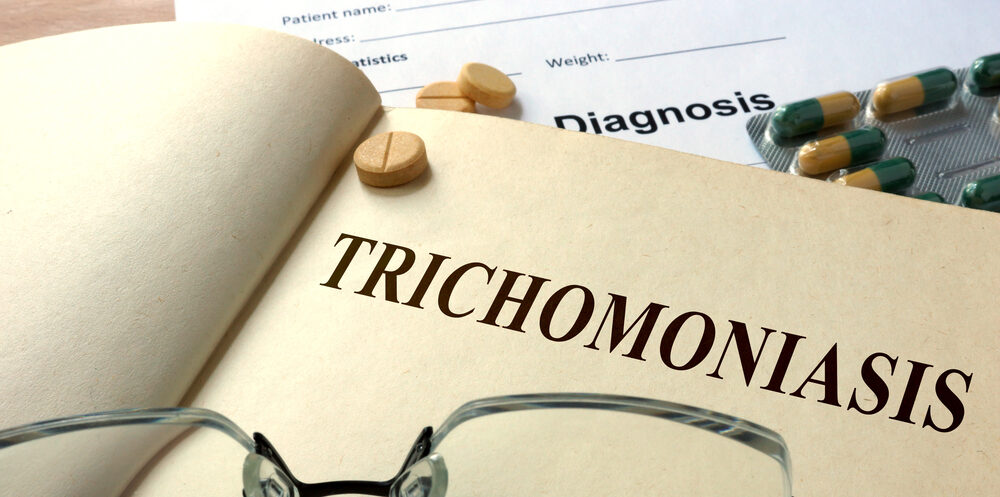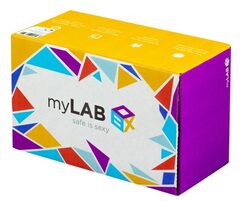Trichomoniasis Infection

Trichomoniasis Symptoms, Testing and Treatment
By STD Concern
Trichomoniasis is a sexually transmitted disease or STD. It is sometimes referred to as Trich or Trichomonas, and it is caused by a parasite known as "Trichomonas Vaginalis." This parasite is commonly found in sexual fluids, including vaginal, pre cum, and semen.
Trichomonas Symptoms
Many people with trichomoniasis don't display any symptoms and don't know they have it. Three out of every ten people who are infected may notice symptoms approximately 3 to 30 days after being exposed.
When symptoms do occur, they only involve the vulva, vagina, or penis because trichomoniasis does not infect other parts of the body such as the anus or mouth.
For Women, the first noticeable symptom is itching of the vagina or vulva, which is referred to as vaginitis. Men and Women with trichomoniasis can also develop an infection of the urethra, the tube that carries urine from the body.
If the urethra becomes infected, urination is accompanied by a bad odor or discomfort. Frequent urination often occurs as well. Irritation and itching can also occur.
Symptoms can include:
- Itching inside or near the vagina.
- Discomfort during urination or sex.
- Genital swelling.
- Foul-smelling discharge.
- Bloody discharge.
- Frequent urination or urge to urinate.
Not Your Symptoms Click Here >>
Testing
Note: You can avoid Health Problems if your STI is Detected & Treated.
Transmission
According to the CDC, approximately 3.7 million people in the United States currently have trichomoniasis. It is perhaps the most common type of curable STD. Not only can people become reinfected with this disease, but they also have a higher risk of getting HIV if they are already infected with trich.
Trichomoniasis is spread through unprotected sexual contact with an individual who is infected with this disease. It spreads easily once infected sexual fluids touch at individual's vulva, vagina, or penis. It is most commonly spread during vaginal sex.
Even if sex does not occur, it is easily spread through contact if infected fluids are present on the genitals, hands, or sex toys.
You cannot catch trich through casual contact. Since it does not infect the mouth, you cannot catch this disease by kissing, sharing drinks or food, coughing, or sneezing.
Trichomonas Treatments
Trichomonas is easily cured using physician-prescribed antibiotics. A single dose of tinidazole or metronidazole can cure your infection, but your sexual partner must also be treated with antibiotics if infected to avoid transferring the disease back to you.
Is Trichomoniasis Curable?
Yes, with the Right Treatment. (CDC)
Conclusion
To avoid being infected practice safe sex which includes using condoms and not engaging in sex with an infected person. If you have any of these symptoms you should be tested ASAP (as soon as possible) and sexual partners be contacted.
Resources
Trichomoniasis - CDC Fact Sheet – Retrieved July 20, 2019
Note: To receive Proper Treatment for STIs, testing is required.
About STD Symptoms
Some people can be Symptomless (No Symptoms) of infection for Days, Months & even Years. Making it difficult to know if you have an STD without Getting Tested.
Also, STDs do have Similar Symptoms so it might be difficult to tell which Individual STD you have contracted. That is why a Panel Test for Multiple STDs is Recommended.
5 Complications of Untreated STIs
- Infertility
- Pregnancy Complications
- Increased Risk of Cancer
- Infection with HIV
See All >>
Related Articles
Could Your Symptoms Signal an STI
Four Simple Ways to Prevent a Cold Sore
See All >>
Products
Featured
Best at-Home STD Test Kit
Test for 8 Common STDs
- Chlamydia | Gonorrhea
- Herpes | Syphilis
- Trichomoniasis
- HIV 1 & HIV 2
- Hepatitis C
No Doctor or Lab Visit
Get Treated if Needed
Order Now >>
 Disclaimer: Articles not intended to Diagnose, Treat, Cure or Prevent Diseases.
Disclaimer: Articles not intended to Diagnose, Treat, Cure or Prevent Diseases.
Infections | Education | Products | Testing


